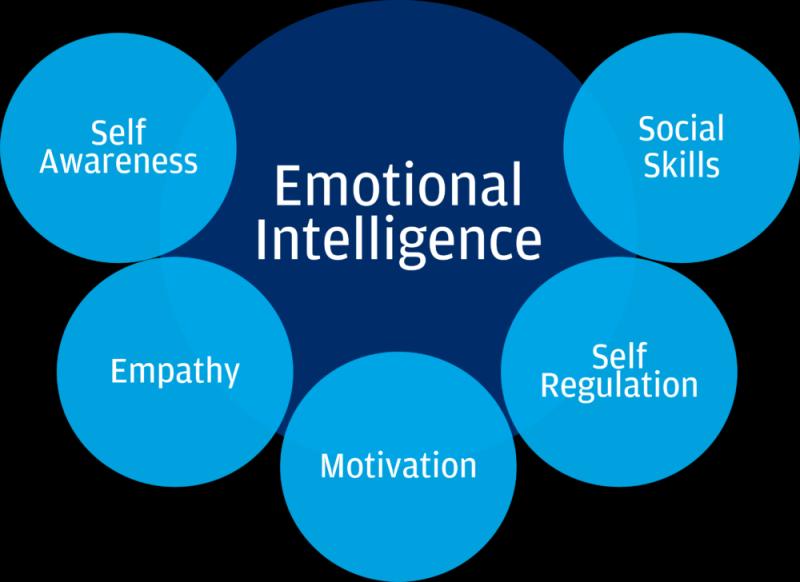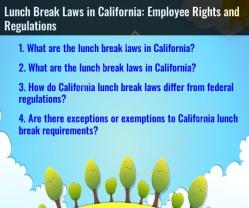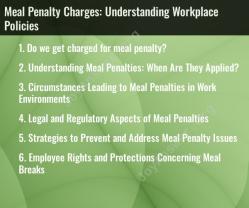Which jobs require a high emotional intelligence?
Numerous professions benefit significantly from high emotional intelligence (EI) due to the interpersonal nature of the roles. Jobs that prioritize empathy, communication, relationship-building, and conflict resolution often require strong emotional intelligence. Some examples include:
1. Healthcare Professions:
- Doctors and Nurses: They need empathy to understand patients' emotions and communicate effectively, especially during difficult diagnoses or treatments.
- Therapists and Counselors: Requiring high EI to establish trust, handle emotions, and guide individuals through challenging situations.
2. Customer Service and Sales:
- Customer Support Representatives: EI helps in understanding and addressing customer needs and resolving conflicts effectively.
- Sales Professionals: Building rapport, understanding clients' needs, and negotiating require strong interpersonal skills.
3. Leadership and Management:
- Managers and Team Leaders: EI is crucial for fostering a positive work environment, motivating teams, resolving conflicts, and providing constructive feedback.
- Human Resources Professionals: Handling employee relations, negotiations, and understanding diverse perspectives necessitates high emotional intelligence.
4. Teaching and Education:
- Teachers: High EI helps in managing classrooms, understanding students' needs, resolving conflicts, and fostering a positive learning environment.
- School Counselors: Working with students to navigate emotional challenges and academic success requires strong empathy and communication skills.
5. Social Work and Community Services:
- Social Workers: Assisting individuals and families facing challenging situations demands empathy, active listening, and problem-solving skills.
- Community Organizers: Building relationships, advocating for community needs, and mediating conflicts benefit from high EI.
6. Creative Professions:
- Artists, Writers, and Designers: Emotionally intelligent individuals can express and understand emotions, connecting with their audience more effectively.
- Actors and Performers: Expressing emotions authentically and connecting with audiences often requires heightened emotional awareness.
7. Emergency Services and Crisis Management:
- Police Officers and Firefighters: Dealing with high-stress situations, diffusing conflicts, and providing support in emergencies require strong emotional resilience and empathy.
Conclusion:
In essence, any profession involving interactions with people, whether clients, patients, colleagues, or the public, benefits from high emotional intelligence. These occupations require individuals to navigate complex emotions, understand diverse perspectives, and communicate effectively to build successful relationships and achieve desired outcomes.
Emotional intelligence (EI) is a crucial skill for success in a wide range of professions and occupations. It is the ability to understand, use, and manage your own emotions in positive ways to achieve your goals and build strong relationships. Here are some professions or occupations that highly value emotional intelligence:
Customer service representatives: EI is essential for customer service representatives, as they must interact with people from all walks of life, often in stressful or challenging situations. They need to be able to empathize with customers, manage their own emotions, and resolve conflicts effectively.
Salespeople: Salespeople need to build strong relationships with potential customers in order to make sales. EI helps them to understand the needs and motivations of their customers, build rapport, and effectively communicate the value of their products or services.
Managers and leaders: Managers and leaders need to be able to motivate and inspire their teams, provide constructive feedback, and resolve conflicts effectively. EI helps them to build strong relationships with their employees, understand their motivations, and create a positive and productive work environment.
Teachers and educators: Teachers and educators need to create a safe and supportive learning environment for their students. EI helps them to understand the needs of their students, manage their own emotions, and handle challenging situations effectively.
Counselors and therapists: Counselors and therapists need to be able to build trust with their clients, understand their emotional experiences, and provide support and guidance. EI is essential for helping clients to develop coping mechanisms, improve their relationships, and overcome mental health challenges.
Healthcare professionals: Healthcare professionals, such as doctors, nurses, and social workers, need to be able to interact with patients in a compassionate and empathetic manner. EI helps them to understand the emotional needs of their patients, provide comfort and support, and communicate effectively about their care.
Human resources professionals: Human resources professionals need to handle sensitive employee issues, resolve conflicts, and provide support to employees. EI helps them to build trust with employees, understand their concerns, and navigate complex interpersonal dynamics.
Project managers: Project managers need to coordinate teams, manage deadlines, and resolve conflicts effectively. EI helps them to understand the needs of their team members, motivate them to achieve their goals, and handle stressful situations effectively.
Marketing and communications professionals: Marketing and communications professionals need to understand their target audience and create compelling messaging. EI helps them to empathize with their audience, tailor their communication strategies, and build strong relationships with stakeholders.
Lawyers and judges: Lawyers and judges need to navigate complex legal issues, represent their clients effectively, and make fair and impartial decisions. EI helps them to understand the emotions of their clients, communicate persuasively, and manage their own emotions in high-pressure situations.
These are just a few examples of professions that highly value emotional intelligence. As the workplace becomes increasingly complex and demanding, EI is becoming an even more critical skill for success in a wide range of careers.












